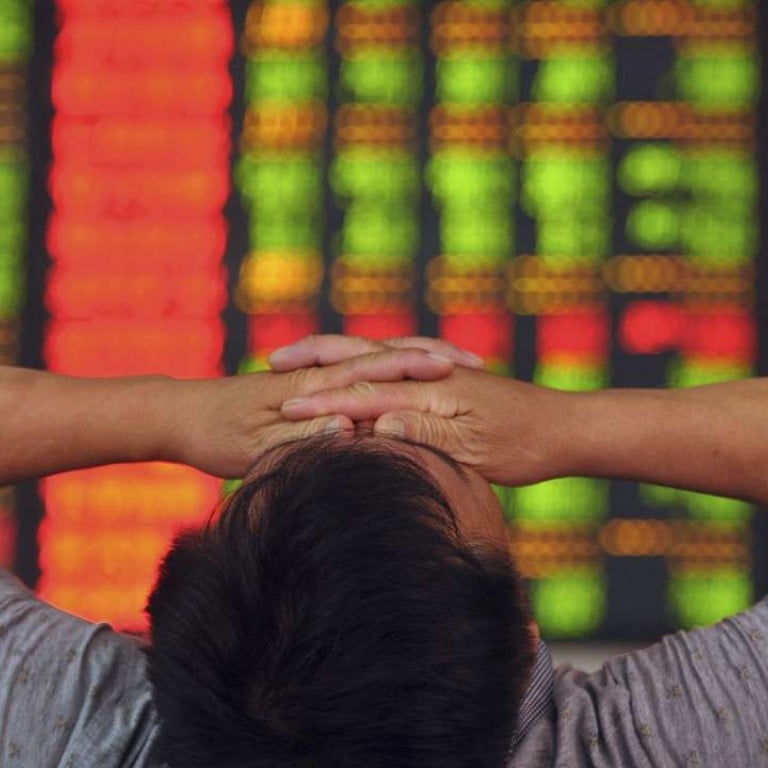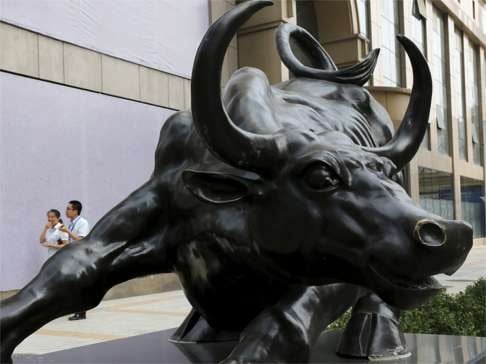
Few lessons learned one year after China’s great market crash
Beijing says it wants to allow market forces to dictate stock prices but refuses to give up control when trading goes against policy, experts say
July 4, 2015, will not be remembered with any fondness by Chinese officials.
It was supposed to be the day that a closed-door meeting rescued China’s stock market. But it proved a dramatic failure.
At the zenith of Beijing’s campaign to end the rout, bosses of the country’s biggest brokerages had been summoned to the head office of the China Securities Regulatory Commission (CSRC) that morning to talk about dealing with a crash that had wiped off a third of the market’s value in three weeks.
One lesson China should learn from its stock market rout
Yet the assembled who’s who of the securities industry and their solutions not only failed to revive the market, but also triggered fresh plunges.
More than a third of listed companies, or nearly 1,000 stocks, hit the daily limit for losses on the first day of trading after the meeting and more than 1,700 stocks hit the limit for losses on the next trading day. Instead of bringing hope to the market, Beijing’s efforts had amplified the panic.

On top of Beijing’s failed mission, the subsequent market fall was a reminder of the inherent contradictions of having intrusive state intervention and a truly international stock market.
Many people at the centre of the effort to prop up stock prices were later dismissed, disciplined, arrested or committed suicide: Xiao Gang, the CSRC chief, was sacked and has disappeared from public view; Wang Dongming, the chairman of brokerage Citic Securities, has “retired” after several executives were arrested over insider-trading allegations; Zhang Yujun, who was the CSRC’s assistant chairman, remains in detention, awaiting charges; and Yang Zezhu, the chairman of Changjiang Securities, one of the 21 brokerage firms that contributed to a rescue fund, killed himself in January by jumping off a building.
Alan Wheatley, an associate fellow of international economics at Chatham House, a British think tank, said Beijing’s efforts to prop up stock prices were, on the surface, a move to ease extreme volatility, but were actually “harnessing the full power of the state to try to dictate the direction of a market”.
The party embraces market forces as long as the trend is supportive of party policy
“The party embraces market forces as long as the trend is supportive of party policy. It rejects market forces the minute they run counter to the direction of party policy. This is patently absurd,” Wheatley said.
“If the government has learnt the lessons, by dismissing some of the officials responsible, what guarantee is there that it won’t do the same again the next time there is another market meltdown?”
Mark Williams, chief Asia economist at Capital Economics in London, said that under President Xi Jinping, Beijing was seeking to free up the market to improve resource allocation, but at the same time, wanted to maintain control over the outcomes. “That’s the contradiction of China’s economic policymaking,” Williams said.
China’s top securities regulator set to continue with strict oversight approach
While China had replaced some officials, punished many and peddled back a few initiatives, leaders were failing to learn the true lesson of “not forcing the market to produce the outcome they want”, he said. Instead, Beijing was placing more restrictions on the market so it would not perform in a dramatic way, he said.

In a speech published last month, Xi said Communist Party cadres must learn new skills to become more capable of managing issues such as stock market volatility, while in March, Premier Li Keqiang said Beijing’s measures aimed at the stock market had achieved the desired effects of preventing systemic risks.
One year on, the trillions of yuan invested by the government to contain the slide are still locked away in the stock market, and there is little immediate chance of the funds making any profits.
State players, such as China Securities Finance gained an increased presence in the market, and even arms of China’s central bank have been revealed as big shareholders of blue chips – possibly because borrowers of central bank funds that were used to push up stock prices have been unable to repay in cash.
Regulatory control over new listings has been tightened, handicapping the market’s role of channelling funds to good companies. The much-talked-about plan to launch a registration system of initial public offerings is now on the back-burner.
Irregular margin trading, which enabled the borrowing of money in order to speculate on stock prices has been curbed, while China has also made a few high-profile arrests. Xu Xiang, China’s top private fund manager, was arrested on suspicion of manipulating the stock market and inside trading.
It seems Beijing has cured some symptoms, but not the root of the stock market’s problems
“It seems Beijing has cured some symptoms, but not the root of the stock market’s problems,” said Hu Xingdou, a professor at the Beijing Institute of Technology.
“It’s easy to snatch a few tigers or fat worms, but it takes a much longer period of time to develop a healthy market infrastructure,” Hu said.
The stock market had remained “abnormal” as most listed companies were still hobbled by various authorities, including central, provincial and city governments, and investors were pursuing quick speculative gains instead of long-term returns.
Mainland China’s stock markets should learn from Hong Kong: central bank adviser
To sort out the market’s problems, the government is trying to reform the regulatory system. Tsinghua University professor of economics Li Daokui proposed during the Chinese People’s Political Consultative Conference in March that a more centralised regulatory framework should be created covering the People’s Bank of China and the banking, securities and insurance watchdogs.

At a meeting last month, Li Yang, a former vice-president of the Chinese Academy of Social Sciences, said Beijing was thinking of “something big” for its stock market and there had been intense discussions about a new regulatory system within the leadership, news website Sina.com reported.
However, it’s still unclear whether Beijing’s planned remedies will be truly good for the long-term health of the nation’s yuan-denominated A-share market.
“Regulators simply can’t dictate market levels, but that is exactly what policymakers, and the public, want them to do,” said Fraser Howie, co-author of Red Capitalism: The Fragile Financial Foundation of China’s Extraordinary Rise.
“But the problems are so ingrained and nothing has been done for years to get the state out of the market– if anything they just get more and more involved.
“Nothing has been learned by Beijing – they are unable to move away from that control mentality.”

